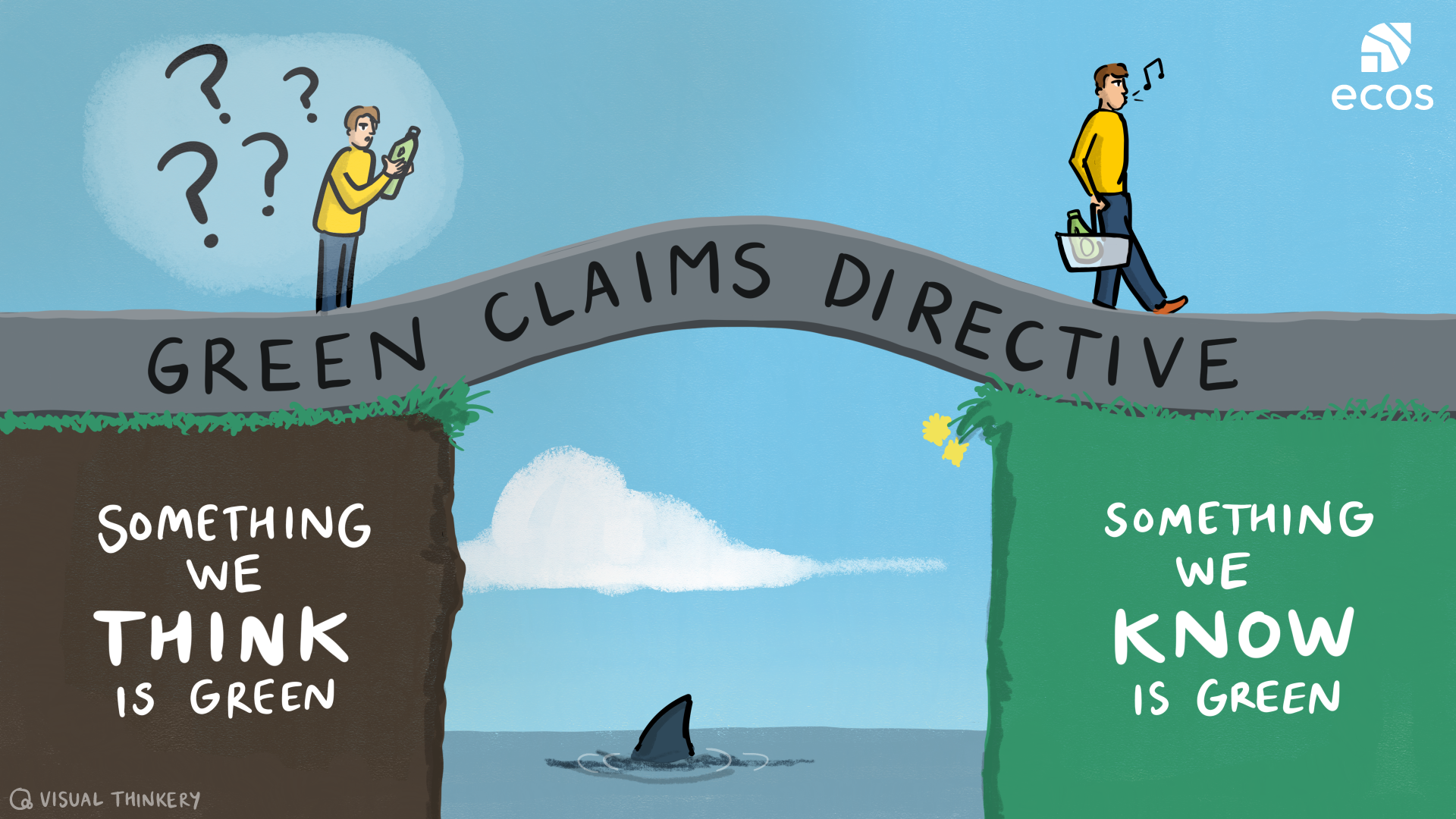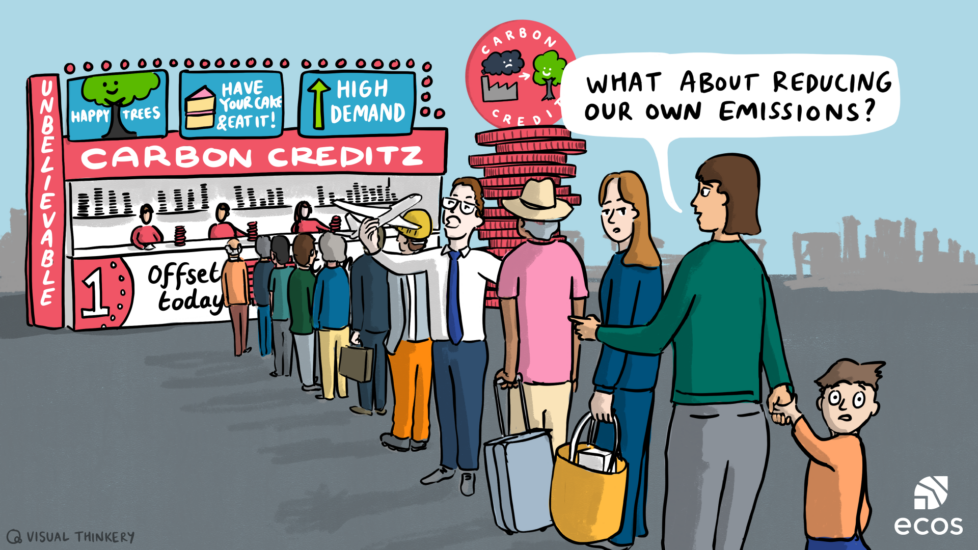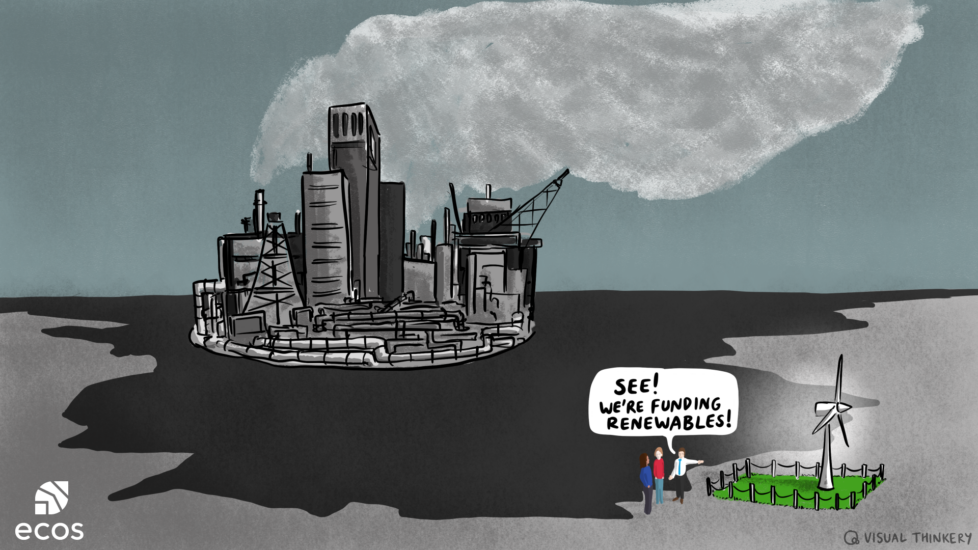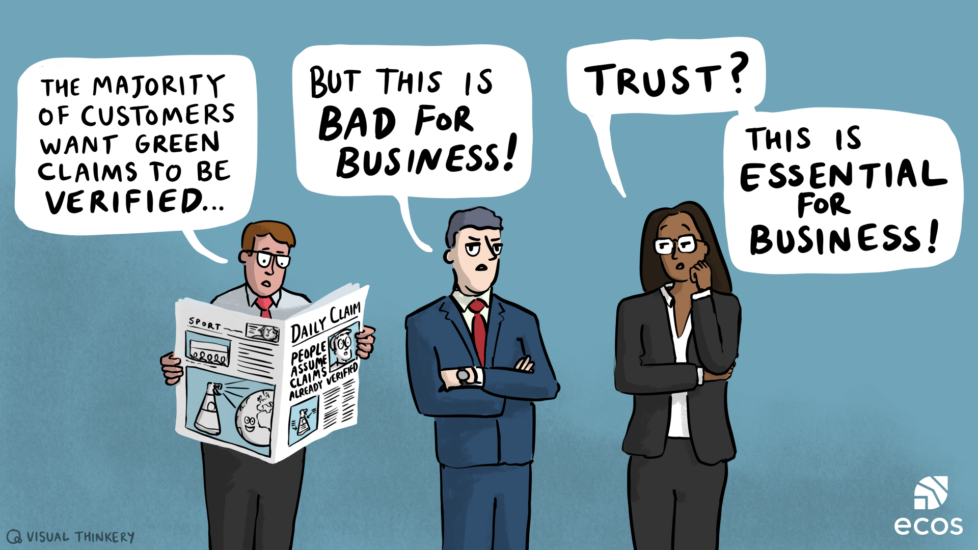Bridging the gaps in the Green Claims Directive
The Green Claims Directive – now entering the final negotiation phase – is Europe’s best chance to eliminate the scourge of greenwashing. As negotiators hammer out the final text, ECOS – involved in developing the Directive since 2020 – shares the key elements needed for the directive to be successful.

The numbers are clear: an enormous 76% of the products on the EU market carry an implicit or explicit green claim, but more than half are misleading, unsubstantiated, or simply inaccurate. This is because rules set in legislation and standards are loose.
Businesses need to have confidence in the claims they can make – and the Green Claims Directive could offer that by:
- Banning environmental claims relying on ‘offsetting’ environmental impacts – just like there is no climate-neutral banana, there is no climate neutral airline company.
- Restricting environmental claims made by highly polluting industries.
- Ensuring efficient verification of all claims before they enter the market.
Ban environmental claims relying on offsetting, including at the trader level
The EU’s Empowering Consumers for the Green Transition Directive has already established ‘offsetting’ as a highly flawed and misleading concept that does not align with scientific evidence. The Green Claims Directive now needs to complete the picture. Rather than compensation, the Green Claims Directive should enable companies to make contribution claims. For example, when a company buys credits to fund a project that removes carbon emissions or restores nature – such as planting trees or funding renewable energy – this does not exempt them from needing to reduce their own emissions. The Green Claims Directive must require companies to acknowledge this.

Restrict environmental claims made by highly polluting industries
Green claims have no place in fossil fuel advertising. Fossil fuel industries cannot reliably substantiate promotional green claims, just as the tobacco industry cannot substantiate health claims. Companies should not be able to advertise marginal ‘green’ activities to shift the public perception. A clear restriction is necessary to protect consumers and reduce the burden on verifiers and regulators.

Companies must be responsible for verifying green claims
Trust is easy to lose and difficult to regain. An enormous 76% of the products on the EU market carry an implicit or explicit green claim, and more than half of environmental claims made by businesses are misleading, unsubstantiated, or inaccurate. Market authorities cannot enforce current legislation sufficiently due to the sheer number of existing claims. Requiring independent verification of all claims before they enter the market would eliminate greenwashing from the start.
Negotiators should keep two key elements in mind when it comes to verification:
- Independent verification is paramount – including in discussions around a simplified procedure aimed at making verification faster.
- Verification should only happen once to avoid unnecessary burden on companies that have already sought external certification.

If you are interested in hearing more about our work on green claims, please send an email to Margaux Le Gallou, Programme Manager at ECOS (margaux.legallou@ecostandard.org). You can also learn more on our website.

 By
By  By
By 
